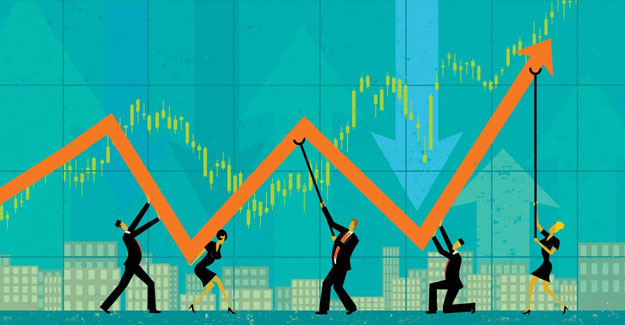EU T&C Sector Shows Signs Of Weak Recovery
After an unprecedented T&C activity plunge in the second quarter of 2020, the third quarter showed clear improvements.
During the 3rd quarter of 2020, the EU turnover partially recovered as compared to the previous quarter, and retail sales of textiles, clothing, footwear and leather goods in specialised stores increased by 62% compared to the second quarter. The EU27 production also experienced a rebound compared to the previous quarter with 25% in textiles and 33% in clothing.
However, the EU output reported a negative quarterly growth as compared with the same period of the previous year. The decline in the clothing industry was -15%, while for the textile industry, it was -7%. Spain and Italy recorded the worst performances in textiles, with production drops reaching -16.5% on average during the 3rd quarter, while Romania and Austria were severely hit in the clothing sector with respectively -25% and -31%.
Such data tells that the signs of recovery, noticed since May, are now slowing down, due most probably to the reintroduction of stricter measures in European countries.
Faced with dramatic forecasts, EURATEX has reiterated its calls to the European Union to work on four critical areas:
- Turn sustainability and circularity into an opportunity for business.
- Invest in upskilling the T&C labour market, developing new curricula which meet today's needs around digital production or technical textiles.
- Promote access to external markets and ensure level playing field on the EU Internal market.
- Invest in innovation, to digitalise production chains and techniques and develop new sustainable materials.
"The agreement on the MFF and recovery package on 18 December is excellent news for everybody, from industry to citizens. This will help to restore confidence in a quick recovery across Europe" says Dirk Vantyghem. "Looking forward, we need to grab the moment and develop an ambitious textile strategy for a sustainable and digital industry".
Latest economic data are a wake-up call to build ambitious textiles strategy
This latest data suggest a situation worse than 2009 as turnover fell by nearly 25% in the textile industry, and by 35% in the clothing sector. On the other hand, imported textile products from China increased sharply. EURATEX asks the European Union to quickly implement what has been promised and develop a resilient industry.
On the occasion of the EURATEX Board of Directors meeting, President Alberto Paccanelli commented on the latest economic update for the European textiles and clothing sector.
"The 2nd quarter of 2020 has shown a decline of our industry as we have never seen before, not even during the 2009 financial crisis: turnover fell by nearly 25% in the textiles industry, and even by 35% in the clothing sector. Retail sales plunged by 43%, in some countries even more than 60%. On the other hand, during this same period (April-June 2020), we witnessed a remarkable increase in imported textile products from China."
Specifically, imports of face masks and other medical textiles grew from Euro 0.6 billion in 2019 to almost Euro 14 billion in 2020, an increase of 2,200%. If we consider only masks, data are even more impressive, as imports grew from Euro 0.5 billion in 2019 to Euro 13.5 billion in 2020, an increase of 2,700%. At the same time, EU exports of T&C products fell by 35% during that same quarter.
Such figures are a wake-up call for the European Union to act quickly. Alberto Paccanelli commented: "President von der Leyen announced an update of the EU's Industry Strategy during her State of the Union; I would ask her to first implement what has been promised, before announcing new strategies: ensure a level playing field for our companies, develop a resilient industry, support innovation, etc. We have put proposals on the table but fail to see progress on their implementation".
In its Recovery Strategy submitted to the European Commission in June, EURATEX had proposed to establish a strategic textile alliance, to support innovation and digitalisation of the industry, to turn sustainability into a source of competitiveness, to ensure free and fair trade.
"In reality, we see an escalating trade war with the US, we see segments of our industry being excluded from the ETS compensation system, we see a reduction in research funding, we see pressure to introduce costly due diligence models, we see critical products being supplied through doubtful procurement processes," he said.
He further stated that the European T&C companies have shown great responsibility during this crisis, by maintaining their labour force as much as possible (employment fell by less than 5%) and reorganising their production to support the health crisis. Many companies invest to improve sustainability and circularity, but they are nonetheless criticised for environmental damages which are caused by others.
Dirk Vantyghem added: "We want to engage in a positive dialogue with the EU to build a modern and competitive Textiles and Clothing industry, as an essential pillar of the European economy. But this dialogue should lead to tangible results. Our entrepreneurs are optimists, as indicated in the September Business confidence (+3.9% from August), but they need a clear framework in which they can grow, innovate and create jobs."
Textile Excellence
Previous News
coloured cotton from india set for commercial release in 2021
Next News
itmf survey reveals improved turnover expectations for 2021 and beyond













